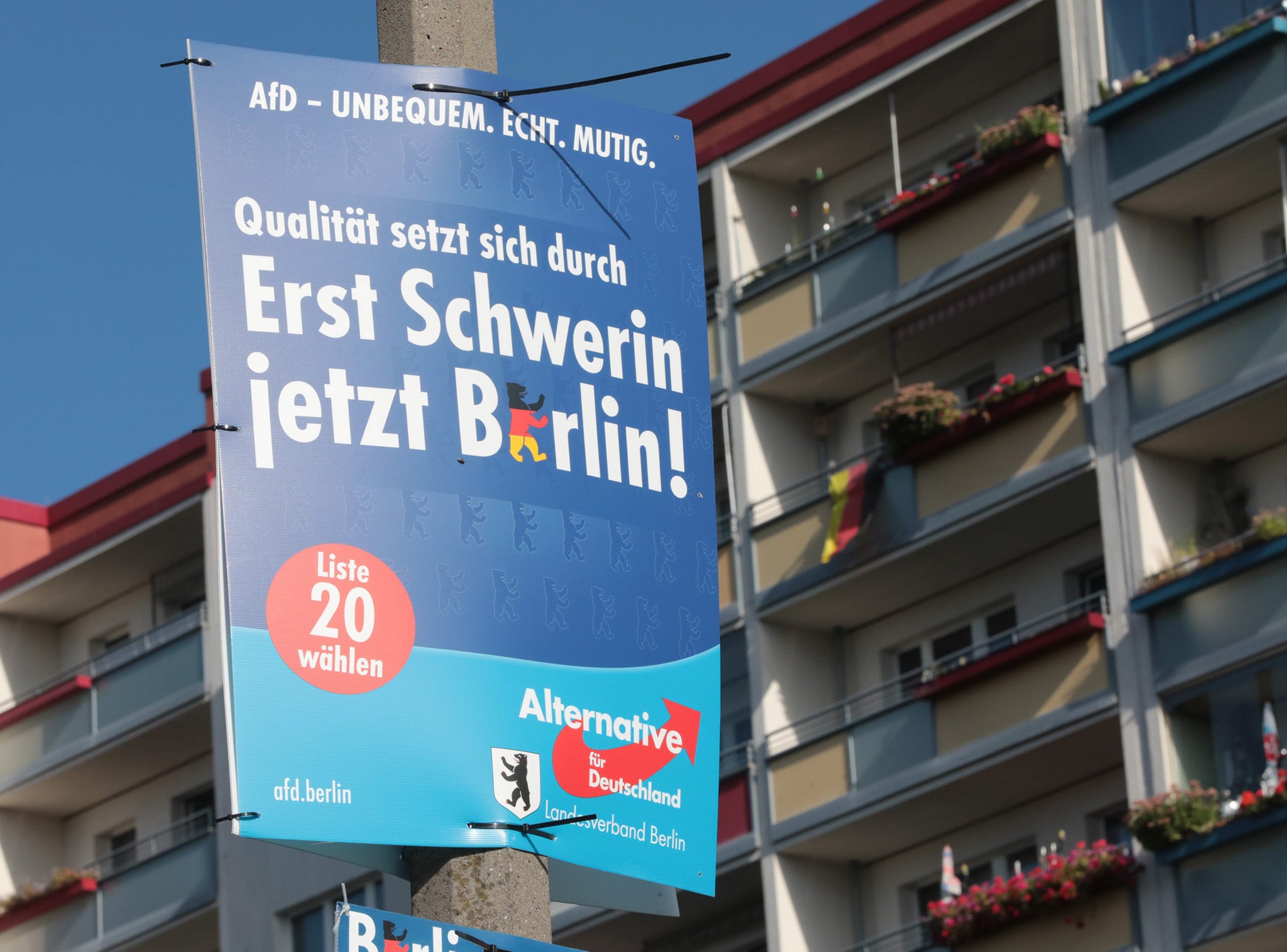Anti-immigrant AfD will become Germany's third biggest party, claims deputy leader
'In 2017 we will witness Angela Merkel fighting for her political life,' says Beatrix von Storch

Your support helps us to tell the story
From reproductive rights to climate change to Big Tech, The Independent is on the ground when the story is developing. Whether it's investigating the financials of Elon Musk's pro-Trump PAC or producing our latest documentary, 'The A Word', which shines a light on the American women fighting for reproductive rights, we know how important it is to parse out the facts from the messaging.
At such a critical moment in US history, we need reporters on the ground. Your donation allows us to keep sending journalists to speak to both sides of the story.
The Independent is trusted by Americans across the entire political spectrum. And unlike many other quality news outlets, we choose not to lock Americans out of our reporting and analysis with paywalls. We believe quality journalism should be available to everyone, paid for by those who can afford it.
Your support makes all the difference.After two successive electoral victories in two weeks, the right-wing Germany party Alternative for Deutschland (AfD) predicts it will become the country's third major party after next year's federal elections.
The party's deputy leader Beatrix von Storch said the gains they have made against Chancellor Angela Merkel's Christian Democrats (CDU) with middle class voters will continue onto next September.
AfD's success has been attributed to its hard anti-immigration stance in contrast to Ms Merkel's refugee-friendly policy which has inspired widespread opposition.
AfD deputy leader Beatrix von Storch wrote on Facebook: "From today onwards the competition between the AfD and the CDU for the leadership of the middle class camp has been set alight.
"In 2017 we will witness Angela Merkel fighting for her political life and the AfD will become the third largest political power in Germany - at the least."
As a result of the losses in the Berlin and the Mecklenburg-Vorpommern state elections, the Chancellor has faced calls from her conservative allies to introduce an immigration cap of 100,000 immigrants per year.
Ms Merkel has rejected such a limit and has defended her approach through securing the EU's external borders, agreeing migration deals with the likes of Turkey and distributing refugees across Europe.
The recent election losses has led to speculation that Chancellor Merkel may not stand for a fourth term in next year's federal election.
The AfD has campaigned heavily on the migrant issue, playing to voters' fears about the cost of the roughly one million migrants who entered Germany last year and about their integration.
Set up three years ago, the AfD has been buoyed by Europe's migrant crisis.
The party has no MPs in the federal parliament in Berlin but has members in more than half of Germany's 16 regional state assemblies.
"Islam is foreign to us and for that reason it cannot invoke the principle of religious freedom to the same degree as Christianity," said Hans-Thomas Tillschneider, an AfD legislator from the state of Saxony-Anhalt, to the party congress in May.
The chapter concerning Muslims in the AfD manifesto is entitled "Islam is not a part of Germany". It demands the banning of mosque minarets and the all-covering burqa.
Join our commenting forum
Join thought-provoking conversations, follow other Independent readers and see their replies
Comments